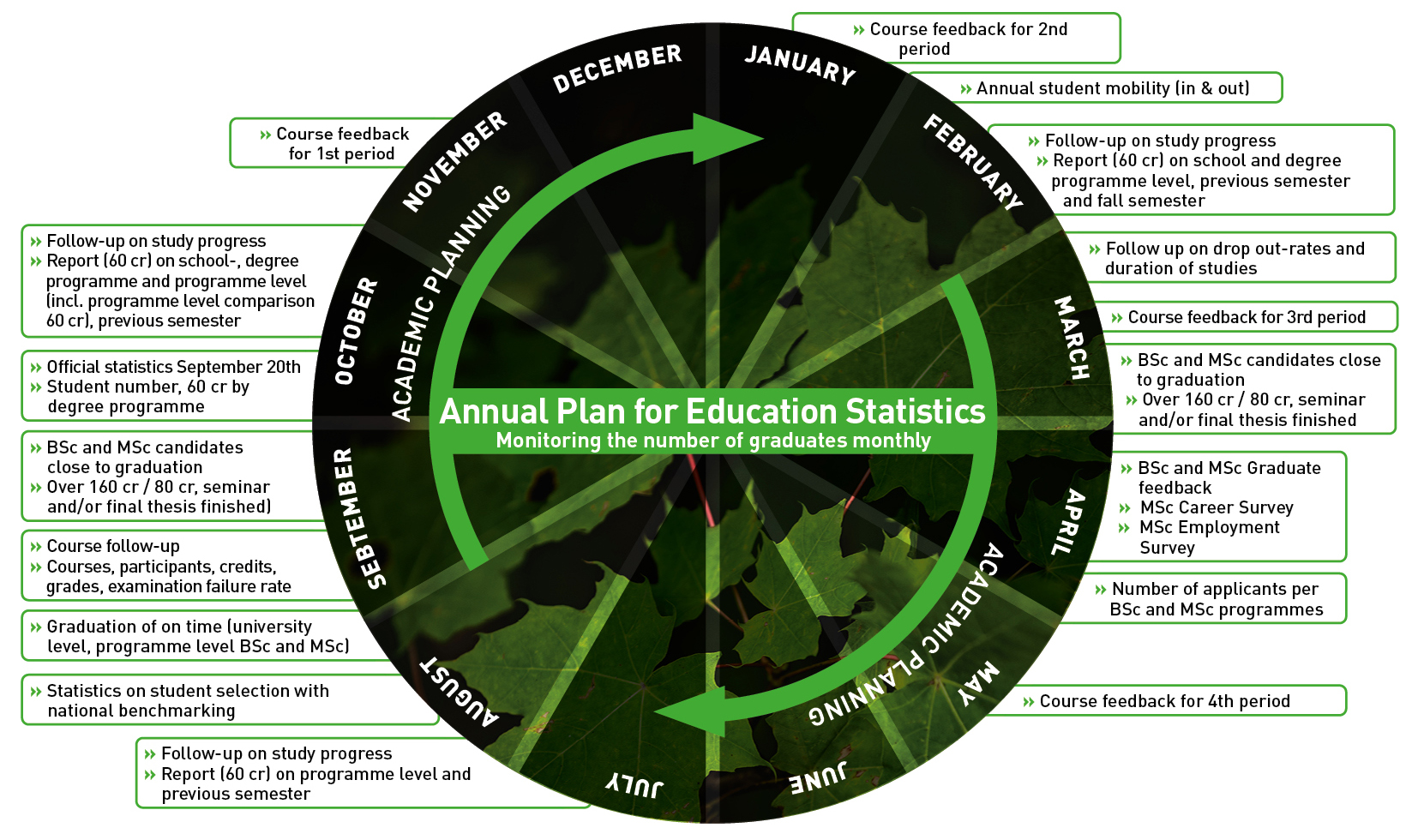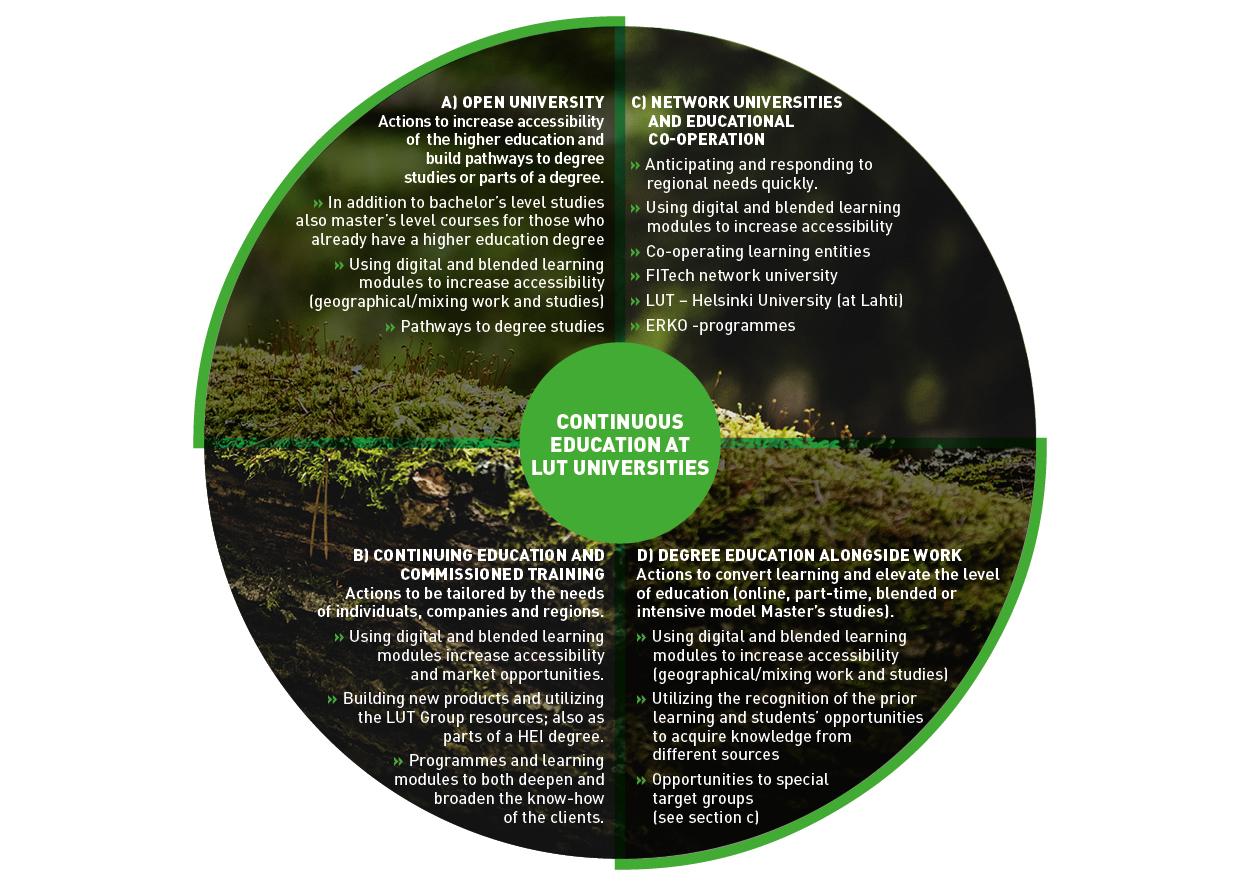Degree programmes have a strong link to the strategy and internationalisation of LUT
The university considers itself as a strategy-driven institution and consequently follows this approach in its degree programme portfolio. Three schools offer bachelor’s and master’s programmes in the fields of business, engineering and computer science with a strong link to the major thematic areas addressed in the strategy. Through their interdisciplinary approach, some degree programmes are even located at the crossroads of business and engineering as well as natural sciences and engineering. The STEM-driven portfolio reflects very well the idea of a 21st-century technical university that educates its students not only for the sake of education but for educating people who are able to solve future, still unknown problems in a global environment. Over twenty degree programmes taught entirely in English fulfil the ambitious aim to make the university a significant research player in Europe and to offer an intercultural campus to both students and staff. Regular meetings of the heads of degree programmes with the Vice-Rector for Education ensure that degree programmes comply with this strategy. There are clear responsibilities for degree programme development, and there are clear pathways from the schools to the committees in charge and back to the schools. The systematic transmission of the strategy into the programme portfolio is a strength of the university, which considerably enhances the planning of education.
The university’s degree regulations comply with the Finnish National Framework for Qualifications (FiNQF). They are available to the public in both Finnish and English on the university’s website. The curricula of degree programmes are competence-based.
Working life relevance is a key aspect in the planning of education
LUT has systematic procedures in place to ensure that its degree programmes and other provisions have a strong relevance for working life. LUT obtains feedback from companies for including working life in the planning of education. This includes regional needs, especially for continuous learning, but from regular meetings with strategic industrial partners, where LUT addresses systematically the company’s recommendations for the enhancement of education. Working life representatives are part of the University Board and various advisory boards of the schools. The degree programme regulations include language courses with a direct connection to working life, such as professional English, Svenska i arbetslivet or Työelämän viestintä. According to the degree programme descriptions, all programmes contain a project-based approach to learning. In the bachelor’s programmes in engineering, there is a compulsory internship. Bachelor students in business may integrate internships as electives in their studies.
International students should be better engaged in the planning of degree programmes aimed at this group
Internationalisation at LUT is shown in the cooperation with international universities and the educational provisions for international degree-seeking students. International accreditations have accelerated the process of internationalisation of education and brought new ideas to both degree programmes and a quality system. Double-degree programmes with strategic partners in various countries offer a more binding arrangement for international students to spend time in Finland, but according to the website, these seem to work mostly on the basis of recognition of foreign credits and not on the basis of systematic cooperative planning. In its self-assessment, the university has already acknowledged the need for more systematic planning of joint programmes. The university could do this together with its strategic partners, and this initiative could include learning outcomes that more thoroughly reflect the international dimension.
At the same time, the university also aims at providing education for international degree-seeking students, especially on the master’s and doctoral levels, in order to increase the number of graduates for both the labour market and future careers in research. The university offers various services for student support, but according to the material available to the audit team, integration into Finnish society is not systematically included in the various degree programmes. According to the interviews, LUT’s international graduates do not necessarily stay in Finland permanently, which is a nationwide problem, as discussions indicate. Today, LUT’s international students can study Finnish up to level B2 (CEFRL) for free, but this not an integral part of the studies. The university should include the integration of international students in Finland more systematically in the planning of degree programmes aimed at this target group.
According to the self-assessment, the university provides various short programmes and degree programmes in continuous education, which consider the needs of both individuals and companies. The university is a member of the FITech Network, cooperating with other technical universities in the delivery of education. According to the interviews, the university acknowledges the potential of digital learning formats, which enable time- and location-independent studies. However, discussions with university members made it clear that the strategy concerning continuous learning is still a work in progress and that the university awaits further instructions and funding from the Finnish Ministry of Education and Culture (MoEC).
Clear responsibilities and structures support the planning of degree education
Aligning with the academic year, there is an annual plan for curriculum work, which contains a systematic review of learning outcomes and course content. The Vice-Rector for Education and the Academic Council of each school supervises this plan. Continuous data collection from various internal and external sources supports the curriculum work. According to the interviews, the recently introduced SISU tool has already considerably enhanced systematic monitoring, even though its initiation is not completely finished yet.
Students at LUT profit from the reciprocity of teaching and research, which is an integral part of the HEI type. Reviewed samples from the curricula of the various degree programmes show that the university ensures the acquisition of research competences from the beginning, and various assignments in class help in practising academic working patterns. Staff members usually teach and conduct research at the same time. Depending on the capacity, staff members can sometimes link teaching and research. Both bachelor and master theses have a strong connection to research, especially to third-party funding. According to the discussions during the audit visit, research platforms and the institutionalised dean’s coffee meeting form an integral part of multidisciplinary cooperation in both teaching and research. New research topics also lead to the development of courses. In this case, teachers appreciate the pedagogic support from the Opetushelp team very much.
The university measures and monitors workload with the help of the curriculum tool and through student feedback. Teachers have to consider the workload when planning a class. However, according to the discussions among the students during the audit visit, the appropriateness of the workload may vary considerably from one class to the other. But there are also voices emphasising changes in the workload due to both formal and informal feedback as well as exchange on the topic between teachers. The university provides teaching staff with a quality manual for teaching, which explains the idea of learning outcomes and target-oriented class planning, including workload. According to the discussions between the students, it is not always easy for doctoral students to link studies, a dissertation and other research and teaching; this is not a unique problem for LUT. The university should have a closer look at the situation of this group.
LUT actively seeks to meet needs in society and working life
Stakeholders give advice on future planning of education on the University Board or on the various advisory boards at the university. According to the interviews, the university actively enquires about ideas on recent societal challenges from various external think tanks, but it also consults internal experts on specific topics. The university has student representatives on many levels, for example on the University Board or in academic councils of the schools. Much to the regret of the university, international students are insufficiently represented on the various committees. This is partly due to the duration of a mandate (two years), which is too long for international students, and partly due to a lack of information. The participation of international students in quality work is further discussed in Section 3.3.
Responsibilities and procedures in degree-programme approval are both clear and transparent and available to the public. The university’s Quality Manual comprises information on responsibilities in degree programme approval: the University Board decides on the school for a certain degree programme. The Vice-Rector for Education is responsible for the degree regulations and gives guidelines for curriculum design. The Academic Council approves all degree programmes, which the heads of degree programmes develop in cooperation with other faculty members.


